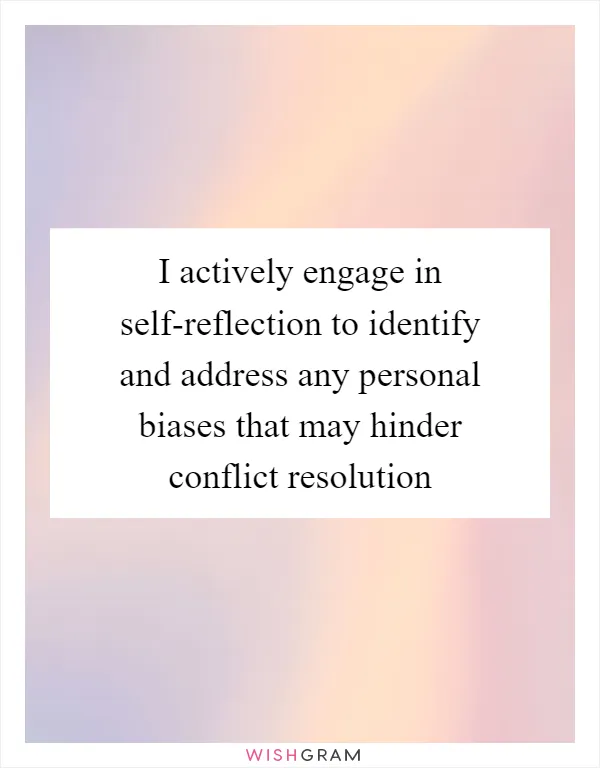I actively engage in self-reflection to identify and address any personal biases that may hinder conflict resolution
The affirmation "I actively engage in self-reflection to identify and address any personal biases that may hinder conflict resolution" can help you become a better problem solver. It is important to recognize that everyone has biases, and these biases can affect how you perceive and respond to conflicts. By actively engaging in self-reflection, you can identify these biases and work to overcome them, which can lead to more effective conflict resolution.
Self-reflection is the process of examining your thoughts, feelings, and actions in order to gain a better understanding of yourself. It involves taking a step back and looking at yourself objectively, without judgment or criticism. When you engage in self-reflection, you can identify patterns in your behavior and thought processes that may be contributing to conflicts in your life.
One of the most common biases that can hinder conflict resolution is confirmation bias. This is the tendency to seek out information that confirms your existing beliefs and ignore information that contradicts them. When you engage in self-reflection, you can identify when you are falling victim to confirmation bias and work to overcome it. This can help you approach conflicts with an open mind and a willingness to consider different perspectives.
Another bias that can hinder conflict resolution is the halo effect. This is the tendency to view someone as all good or all bad based on a single characteristic or trait. When you engage in self-reflection, you can identify when you are falling victim to the halo effect and work to overcome it. This can help you approach conflicts with a more nuanced understanding of the people involved.
Self-reflection can also help you identify your own triggers and biases. For example, if you have a history of being bullied, you may be more likely to perceive someone as aggressive or threatening, even if they are not. By recognizing this bias, you can work to overcome it and approach conflicts with a more objective perspective.
In order to engage in self-reflection, it is important to set aside time for introspection. This can involve journaling, meditation, or simply taking a few minutes each day to reflect on your thoughts and feelings. It is also important to approach self-reflection with an open mind and a willingness to be honest with yourself. This can be challenging, but it is essential for personal growth and effective conflict resolution.
